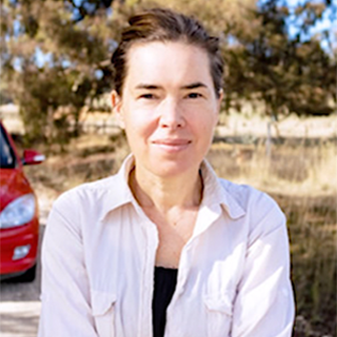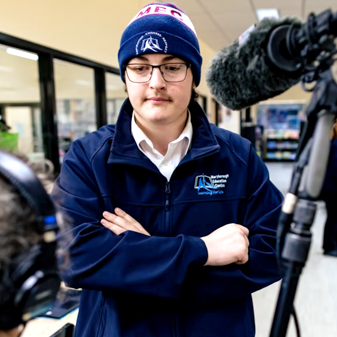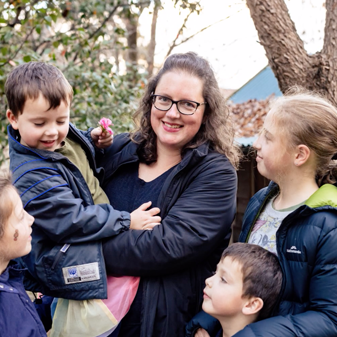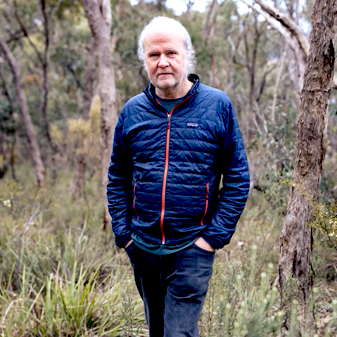


Climate Ready People
Where climate justice is centered for the wellbeing of all
To strengthen and support resilient people and communities we want to achieve transformative adaptation that harnesses local knowledge and skills, and prioritises actions, that centres the needs and voices of people most disproportionately impacted by climate change.
Our resilience goals
What We Value
Across the region our communities have had conversations about what they most value and need to protect in a changing climate. These conversations have informed the goals, objectives and priority actions of the Climate Ready Plan. This is what we heard:
Our elderly
‘There is lots of combined wisdom in the elderly in our communities, but they also might be frail and more vulnerable’
Our youth
‘As young people we are very worried about the future, but we have lots of ideas and are willing to make change'
First Nations’ people
‘There is so much we can learn from our Traditional Owners and how they managed the land’
Volunteers
‘We wouldn’t be able to do what we do without the volunteers in this town – they are so important to keep the town going’
Sense of community
‘I love the way our community comes together especially when there is a celebration or people need help’
Community activities
‘Community sport plays an import role in the health and wellbeing of people of all ages in the community’
Access to green space
‘Being able to go for a walk, a picnic or camping makes me feel happy and connected to nature’
Local fresh food
‘We are lucky to have a farmers markets where we can buy food grown locally’
Diversity
‘We have our own strengths and our own knowledge that we have bought with us and we want to share them if we have the chance’
Our People
Our region is one of the fastest growing in the state and we are fortunate to have the highest population of First Nations people in Victoria. One in ten of us was born overseas and our communities include Karen, South Sudanese, Afghan, Burundian, Sri Lankan, Congolese and Filipino heritage. We range in age with a third of us under 24 years and a quarter us over 65. Although a quarter of the region’s population lives alone, we’re extremely engaged in our communities with high rates of volunteer work (more than the state average) and attendance at local community events.
Through our engagement we learnt that a core concern for communities was the declining liveability and survivability of the region under climate change, also observing the escalating challenges of this following the social and economic impacts of the COVID-19 pandemic. Most people highlighted the disproportionate burden of climate change impacts for communities already experiencing hardship and disadvantage, including lower income communities, people living with disabilities or illness, older residents, First Nations’ peoples, people from new and emerging migrant and refugee communities, children and youth, women, and gender diverse people.
The discussions recognised the physical, mental, social, and economic effects of this burden, tied to accessing fresh and affordable food, affordable energy and housing, community-driven initiatives and enterprise, reliable services and localised supports, and public and green space. Many people responded that the knowledges of these groups were not well considered within existing climate adaptation responses or were missing altogether, exacerbating the effects for vulnerable communities. We received a range of local stories, including from recent migrants to the region who were concerned about top-down approaches to information sharing. Suggested opportunities to bridge these gaps included using peer-to-peer forums, leadership networks, and cross-cultural learning and engagement opportunities to facilitate knowledge sharing and capacity strengthening.
Through our engagement we learnt that a core concern for communities was the declining liveability and survivability of the region under climate change, also observing the escalating challenges of this following the social and economic impacts of the COVID-19 pandemic. Most people highlighted the disproportionate burden of climate change impacts for communities already experiencing hardship and disadvantage, including lower income communities, people living with disabilities or illness, older residents, First Nations’ peoples, people from new and emerging migrant and refugee communities, children and youth, women, and gender diverse people.
The discussions recognised the physical, mental, social, and economic effects of this burden, tied to accessing fresh and affordable food, affordable energy and housing, community-driven initiatives and enterprise, reliable services and localised supports, and public and green space. Many people responded that the knowledges of these groups were not well considered within existing climate adaptation responses or were missing altogether, exacerbating the effects for vulnerable communities. We received a range of local stories, including from recent migrants to the region who were concerned about top-down approaches to information sharing. Suggested opportunities to bridge these gaps included using peer-to-peer forums, leadership networks, and cross-cultural learning and engagement opportunities to facilitate knowledge sharing and capacity strengthening.
We acknowledge and respect Victorian Traditional Owners as the original custodians of Victoria’s land and waters, their unique ability to care for Country and deep spiritual connection to it. We honour Elders past and present whose knowledge and wisdom has ensured the continuation of culture and traditional practices. We are committed to enabling self-determination for all Aboriginal people and aim to work closely with the Aboriginal community to drive action and improve outcomes especially in the context of a changing climate.



